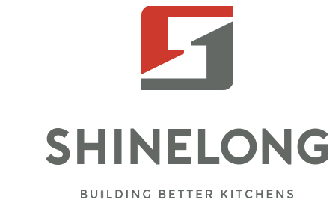News
The Impact of Modular Kitchen Furniture on Space Optimization
Benefits of Modular Kitchen Furniture for Space Optimization
Compact Design for Small Spaces
Modular kitchens really make good use of available space, which is why they work so well in apartments and small homes where every inch counts. Kitchen furniture in these setups often does double duty, giving homeowners lots of storage and functionality while still looking nice. According to some real estate folks I've talked to, making the most of kitchen space improves daily life for residents and actually boosts what a place is worth on the market. Homeowners who invest in smart kitchen layouts tend to see their money back when it comes time to sell or rent out their property.
Customizable Storage Solutions
Modular kitchens are great because they can be customized, especially when it comes to storage options. People who own these kitchens get to design storage spaces exactly how they need them, which helps keep things organized and reduces mess around the house. Research shows there's something to this approach too many homes with custom storage tend to work better overall and are just easier to use day to day. The ability to personalize really makes these kitchens practical for everyday living while matching what homeowners actually want and need in their space.
Clutter-Free Organization
Modular kitchens are designed in a way that naturally keeps things from getting messy, making it much easier to move around while cooking. Most come equipped with those clever built-in storage solutions where pots, pans, and spices all have their own special spots. Think about those pull-out drawers for silverware or magnetic strips for knives - these little touches really make a difference when preparing meals. Some research suggests that tidy workspaces actually help reduce stress levels during meal prep time. At the end of the day, what matters most is that good kitchen organization isn't just about looking nice. It's about creating practical living spaces where home cooks can actually enjoy themselves without constantly hunting for missing ingredients or tools.
How Modular Kitchens Maximize Vertical and Horizontal Space
Smart Layouts (L-Shaped, U-Shaped)
Modular kitchens make great use of available space thanks to smart design choices like L-shapes and U-shapes. These kitchen arrangements work wonders for maximizing every inch vertically and horizontally, making it easier to move around when cooking, washing dishes, or grabbing things from storage. People who go for these kinds of layouts often find their kitchen functions improve quite a bit maybe even close to 30% better in some cases. The difference really shows when cooking becomes less stressful because everything seems to flow better and there's plenty of room to get things done without bumping into counters or cabinets all the time.
Tall Storage Cabinets for Vertical Utilization
Tall storage cabinets really help make the most of vertical space in those modern modular kitchens. They go all the way up to the ceiling, giving plenty of room for stuff we don't use every day, which cuts down on wasted space right above our countertops. Some studies have found that when kitchens include these kinds of vertical storage options, they end up with about 20% more storage space overall. The whole point is making sure no part of the kitchen goes to waste, so everything has its place while still keeping things functional for everyday cooking needs.
Corner Unit Innovations
Modular kitchens often feature smart storage options such as lazy Susans and those handy pull-out racks that fit right into those awkward corner spots. Kitchen designers have come up with these clever corner unit ideas so people don't have to stretch across the room just to grab something from the back of a cabinet. According to some industry studies, making good use of those wasted corners can actually free up around 15 extra cubic feet of storage space. What's great about these storage solutions is they keep frequently used items within easy reach while still expanding overall capacity. Home cooks especially appreciate how these additions simplify meal prep without having to hunt through cluttered cabinets.
Key Design Elements Enhancing Efficiency
Stainless Steel Kitchen Sink Integration
When stainless steel sinks get incorporated into those modern modular kitchen setups, they really boost how smoothly people move between preparing food and washing up. These sinks can take a beating without showing wear and tear, which matters a lot in busy kitchens where spills happen all the time. Plus, they stay looking good even after years of daily use. Stainless steel has this solid feel to it while still giving off that clean, restaurant-quality vibe that makes any kitchen look better. Homeowners who have installed these kinds of sinks report feeling much happier with their kitchen space overall. They appreciate both how practical the material is for everyday tasks and how it looks so nice at the same time.
Pull-Out Drawers and Carousel Units
Adding pull out drawers and those spinning carousel units to modular kitchens makes everything way easier to get to, so nobody has to stretch their arms into those deep corners anymore. People find it much simpler to keep their kitchen stuff organized this way, which means counters stay looking neat without all the clutter building up over time. What's great about these storage options is how they look good while actually working well too. Kitchens that have gone for these kinds of smart storage systems tend to save around a quarter of the time folks usually waste hunting around for spices or cooking tools. Makes sense really when thinking about how much smoother meal prep can be when everything just reaches right out at you.
Integrated Appliance Zones
When kitchens are designed with integrated appliance zones, they tend to become much more organized places to work. Putting all the needed appliances where they can be easily accessed cuts down on wasted steps while cooking, which helps save time overall. Research indicates that people who cook in kitchens with thoughtfully arranged appliance areas report better workflow experiences and generally feel happier with their kitchen space. These planned out sections really do make cooking go smoother because there's less clutter around compared to when appliances are just tossed wherever they fit. Most home cooks will tell anyone who asks that having everything within arm's reach makes all the difference in reducing frustration during meal prep.
Sustainability and Maintenance Advantages
Eco-Friendly Material Choices
Modular kitchens are now pretty much essential for anyone wanting to live sustainably these days, mostly because they come with lots of green materials built right in. When people choose things like reclaimed wood or bamboo surfaces along with those low energy appliances, it cuts down on their overall carbon impact without sacrificing style in the kitchen space. Studies show that more folks are going green when it comes to what they put in their kitchens lately. Seems like there's definitely been a change in how people shop for home stuff, with environmental concerns becoming much more important than before.
Easy-Clean Surfaces for Hygiene
Kitchens designed in modular style really focus on keeping things clean because they come with surfaces that wipe down easily, which helps cut back on bacteria buildup. Quartz countertops, those laminate options, and stainless steel backsplashes all make cleaning a breeze after cooking sessions or meal prep. Studies from health departments actually show kitchens maintained at high standards have way fewer cases of food poisoning problems. That's why so many homeowners now look for these easy to maintain surfaces when renovating their kitchen spaces.
Durable Hardware for Longevity
Putting durable hardware into modular kitchens means they'll last longer and won't need replacing so often. When someone spends money on good quality stuff like solid brass hinges or heavy duty slides, it actually pays off in the long run. These components don't wear out as fast, which cuts down on repair bills month after month. According to industry reports from kitchen manufacturers, units with premium hardware typically stay functional for around double the lifespan of cheaper alternatives made with basic plastic parts. Homeowners who choose this route find themselves saving money while reducing waste, since their kitchen remains usable for many years without needing complete overhauls.
FAQ
What are the benefits of modular kitchen furniture?
Modular kitchen furniture offers space optimization, customizable storage solutions, clutter-free organization, enhanced efficiency, and sustainability advantages.
How do modular kitchens utilize space efficiently?
Through smart layouts like L-shaped, U-shaped configurations, tall storage cabinets for vertical space utilization, and corner unit innovations, modular kitchens maximize both vertical and horizontal space usage.
What materials are recommended for modular kitchens?
Eco-friendly materials such as recycled wood, bamboo, quartz, laminate, and stainless steel are recommended for their durability, sustainability, and ease of maintenance.
How can modular kitchens contribute to a stress-free cooking experience?
The organized layout with built-in racks, pull-out drawers, carousel units, and integrated appliance zones streamlines the cooking process, reducing clutter and chaos, thus promoting mental well-being.
 After-Sales:
After-Sales:
 EN
EN
 AR
AR
 HR
HR
 NL
NL
 FI
FI
 FR
FR
 DE
DE
 EL
EL
 HI
HI
 IT
IT
 PT
PT
 RO
RO
 RU
RU
 ES
ES
 TL
TL
 ID
ID
 SL
SL
 VI
VI
 ET
ET
 MT
MT
 TH
TH
 FA
FA
 AF
AF
 MS
MS
 IS
IS
 MK
MK
 HY
HY
 AZ
AZ
 KA
KA
 UR
UR
 BN
BN
 BS
BS
 KM
KM
 LO
LO
 LA
LA
 MN
MN
 NE
NE
 MY
MY
 UZ
UZ
 KU
KU









